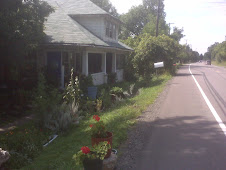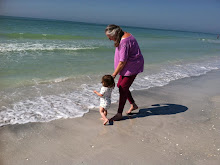[see below for Team Coordinator hannah Choi's minutes from this meeting]
MARCH 5: meeting with the Planktons:
MBA Team from Cornell's Johnson Graduate School of business has been hard at work on our behalf. They've named themselves the Planktons, after a micro-organism that thrives on solar energy and is essential for life in the sea. Given the enormity of the overall vision, we've agreed that they will focus in on the Barn component - a create a business plan, in powerpoint presentation format.
The basic goal for renovating the Barn is to create a sustainable environment for artists, students and youth, with built-in revenue streams. The business plan will include
* vision statement: components [suggestion: find Engineering or Landscape Architecture volunteer who can render 3-D
drawings - PFH]
* research base: model hostels, legalities, operations; community arts centers; non-profit income generators; commercial kitchen regulations [PFH]
* rationale/need:
- Youth Hostel as 'cost-sensitive' visitor lodging option, why LGF attractive
- Community Arts Center, why will be unique in region
- Commercial Kitchen, why good base for on-going revenue streams
* marketing approach :
- website, rack cards, memberships (area arts groups) ...
- physical setting: Level Green Farm, Six Mile Creek Nature Preserve, nearby bus stop
- Eco-Tourism overview for region
- program facilities
* Financial Model
- start-up costs (renovation, equipment): funding sources, other resources
- operating costs: funding sources, projected revenue streams
- funding sources for start-up and operations
Start-up costs will include
* 'green' renovation of the structure itself [PFH: ASI Renovations; Rick Lazarus; Victoria Romanoff: feasibility, projected ballpark cost]
- keep 1930s appearance in front, open up back for passive solar
- strengthen foundations
- basement flooring
- back deck (size: footprint of original structure)
- interior walls
- windows
- insulation
- raise roof in back
- circular stairs from basement to 3rd floor
- exterior stairs to 3rd floor
- new roof with solar paneling
- wind turbine on roof
- lighting
- water
- sewer [HUGE - need new system]
- heating
- electricity
- TV, telephone, internet connections
- smoke alarm system
* ground floor: commercial kitchen, meeting space, library with computer work stations (under deck), laundry, storage
- handicapped access entrance from garden
- kitchen equipment (cooler, stove, 3-bay sink, counter/work stations, freezer, refrigerator)
- work table
- serving counter, long eating tables
- corner for internet cafe
- storage cupboards (plates etc)
- library: study tables, lamps, work stations, bookshelves, rugs, easy chairs/sofas, windows looking out over garden
- handicapped access bathroom
* main floor: community arts space
- wheelchair-accessible entrance from driveway/brick patio in front with landscaping
- white walls, moldings for gallery exhibitions
- back (garden side) wall: wide glass french doors to deck
- interior wall with mirror and dance handrail
- behind interior wall: small kitchen (microwave, coffee, water); bathroom (handicapped accessible), storage space
* top floor: Youth Hostel dorms with space for 8-10 guests
- passive solar flooring
- wide windows overlooking garden
- bathroom with 2 shower, 2 toilet stalls, 2 sinks, towel hooks on walls
- five bunk beds
- moveable interior partial walls
- storage lockers
- hooks on wall/coat racks for clothing
- rugs, easy chairs, sofa, TV
Operating Costs most likely will include
* staff: part-time (varying %) - Level Green director; Hostel Manager; facilities manager, program coordinator
* utilities: water, sewer, gas/electric [est 300/mo]
* phone, internet access, TV [120/mo]
* insurance (facilities, public access) [200/mo]
* maintenance/repairs: building, garden, equipment [est 1500/yr]
Potential Revenue Streams
* Center membership, linked with usage
* Program fees/donations
* Green Cuisine business
* Cafe
* Hostel
HANNAH CHOI'S MINUTES FROM THIS MEETING:
Level Green Institute + Planktons, Inc.
Meeting Minutes – Friday, 5 March 2010
- Patricia provided updates on upcoming meetings.
o Town supervisor (3/10). She will push to get a timeline and perhaps town engineers to get involved with the driveway and parking lot.
o Tourism board (3/11)
o Architect meeting (week of 3/15) – specialist in old barns to advise on stabilization, insulation, electricity, water, concrete floor in basement, etc.
- Agreed upon the following objectives to frame our work:
o Sustainable atmosphere for artists, students, arts groups, etc.
o Revenue-generating
- Discussed revenue streams:
o Hostelling.
o Green cuisine/café for organic and locally grown foods.
o Commercial kitchen – canning
- Agreed to focus Planktons’ work on JUST the barn.
o Need to map out the barn by floor and the areas of focus on each
o Focus on costs for just the barn
- Agreed to include the following in the final powerpoint deliverable:
o Multi-use space description – not projected to charge (barter system) so no revenue streams
o Commercial kitchen description – possible revenue streams – demand forecast
o Hostel description – possible revenue streams – demand forecast
o Financial Model
o Marketing
o Prospective funding
- Outlined fixed and operating costs:
o See attached doc
Action items:
- Sketch of the map (Patricia)
- Estimation of fixed costs (Patricia)
- Hostel demand numbers from tourism board (Patricia)
- Prospective funding (Patricia)
Next meeting:
- Thursday, April 1 at 1:00pm in Sage Hall.
Hannah Choi
MBA Class of 2011
The Johnson School at Cornell University
Mobile: +1 607 339 7930
Subscribe to:
Post Comments (Atom)










No comments:
Post a Comment